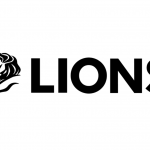/cdn.vox-cdn.com/uploads/chorus_image/image/65741808/jbareham_180405_1777_facebook_0003.0.jpg)
Facebook and Google’s persistent surveillance of billions of people around the world threatens human rights and free expression, says Amnesty International. In a new report, the NGO argues the companies need to change their business model and stop being reliant on people’s data.
The internet is a necessary part of daily life for people all over the world. The “Big Five” tech companies — Apple, Amazon, Google, Microsoft and Facebook — dominate almost all online services. Facebook and Google are particularly powerful when it comes to speech and free expression — two fundamental rights that Amnesty International says are under assault.
The report points out that Google now controls 90 percent of search engine usage around the world, while one third of the globe uses a Facebook-owned service every day. “Billions of people have no meaningful choice but to access this public space on terms dictated by Facebook and Google,” said Kumi Naidoo, Secretary General of Amnesty International.
The report comes amid growing regulatory scrutiny of major tech companies. Facebook is currently being investigated for allegedly violating users’ privacy, and the social network’s data has been used to manipulate elections. Google is facing inquiries about its data collection policies. And both companies are being probed over how their alleged business practices may have impacted consumers.
“This isn’t the internet people signed up for,” said Naidoo. The companies have made people reliant on their services and now monitor every message and search query. “We are now trapped. Either we must submit to this pervasive surveillance machinery – where our data is easily weaponized to manipulate and influence us – or forego the benefits of the digital world.”
A Google spokesperson said the company is working to give people more control over their data. “We recognize that people trust us with their information and that we have a responsibility to protect it,” they said. “Over the past 18 months we have made significant changes and built tools to give people more control over their information.”
According to Amnesty, part of the problem is that tech companies have gotten too big. “The dominance of the companies’ platforms means it is now effectively impossible to engage with the internet without ‘consenting’ to their surveillance-based business model,” the report says.
The decisions these companies make — to regulate speech, collect people’s health information, or allow politicians to lie in ads— are felt all over the world.
In an effort to combat the idea that Facebook should be broken up, Mark Zuckerberg has been promoting the idea that Facebook is moving towards more privacy and data security, while its Chinese rivals are not.
“Our services like WhatsApp are used by protestors and activists everywhere due to strong encryption and privacy protections,” he said during a speech at Georgetown University last month. “On TikTok, the Chinese app, mentions of these same protests are censored, even here in the US. Is that the internet that we want?
But a better solution, according to Amnesty International, is to change the business model. As long as tech companies rely on ads to make money, user data will be their favorite currency. The report didn’t offer an alternative monetization strategy that would work better — but it could include subscriptions, as the Center for Humane Technology’s Tristan Harris has suggested in the past.
A Facebook spokesperson said the company disagreed with this assessment. “Our business model is how groups like Amnesty International – who currently run ads on Facebook – reach supporters, raise money, and advance their mission,” they added.
The second part of the solution is more regulation. The report called on governments to pass new data privacy laws and enforce the ones that currently exist. “Now it is time to reclaim this vital public space for everyone rather than a few powerful unaccountable companies in Silicon Valley” said Naidoo.
source: http://www.theverge.com
MARKETING Magazine is not responsible for the content of external sites.









